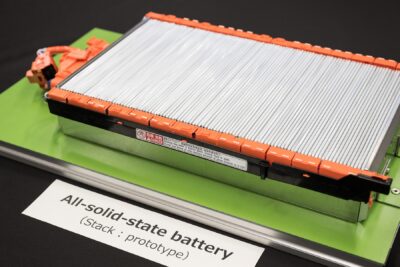HyMetBat project provides measurement technology for the development of sustainable batteries
The project name HyMetBat stands for “Hybrid metrology for sustainable and low-carbon footprint battery materials.” The 30 partners in the consortium, led by the Physikalisch-Technische Bundesanstalt (PTB), want to develop innovative measurement technology that will accelerate the development of batteries with fewer “scarce and harmful raw materials.”
“We want to provide manufacturers with tools to precisely analyse and specifically improve battery materials,” explained project manager Burkhard Beckhoff from PTB. The focus is on new measurement methods and standards “that provide deeper insights into battery chemistry and function than before.” This should enable materials for new battery technologies to be precisely characterised – from the development of new, sustainable electrodes to optimised recycling processes.
According to the PTB, there is enormous demand for high-performance batteries that are produced in a more environmentally friendly manner and are easier to recycle. The federal institute itself is contributing a key technology to the project in the form of X-ray fluorescence analysis. According to those responsible, this provides high-resolution information about the chemical elements and their bonds, even while a battery is in operation. “Charging, discharging and all the chemical processes involved can thus be observed non-destructively and precisely. Such real-time insights were previously only possible to a limited extent and are of great value for targeted material development,” the institution reports.
In the project, X-ray fluorescence analysis is combined with other powerful analysis techniques. The aim is to provide a complete picture of the chemical, electrical, structural and thermal properties of battery materials – and thus a deep understanding of their complex interactions, which determine a battery’s capacity, efficiency, energy density and service life. The analysis methods and findings developed will then be transferred from the laboratory to industrial production and recycling.
HyMetBat is receiving around €3.5 million in funding from the EU. National metrology institutes, universities and industry partners are all involved in the project. “The high level of participation shows how great the interest is in long-lasting, high-performance and cost-effective batteries – not least for energy security, technological sovereignty and competitiveness,” emphasises Beckhoff. Other participants from Germany include the Helmholtz Centre Berlin for Materials and Energy, the Technical University of Berlin and the University of Münster. The Swiss Federal Laboratories for Materials Testing and Research is also involved on the Swiss side.
ptb.de (in German), euramet.org, hymetbat.inrim.it
This article was first published by Cora Werwitzke for electrive’s German edition.





0 Comments